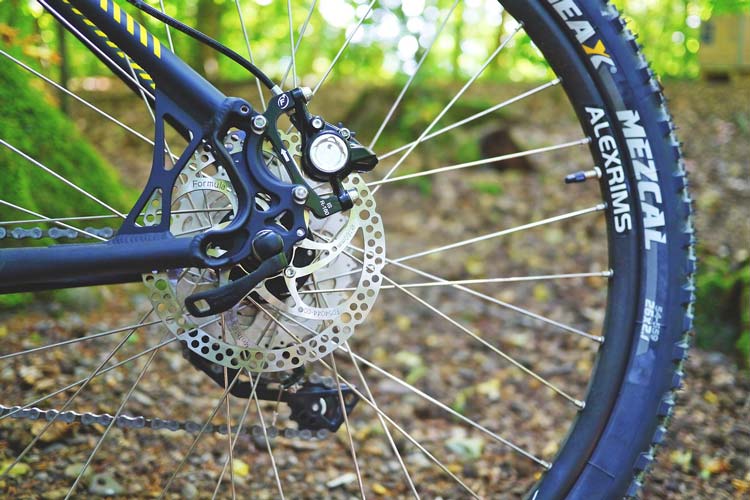Brakes are one of the most important components of a bike. They provide the rider with the necessary stopping power to ensure their safety on the road. When it comes to brakes, there are two options available: Rim brakes and disc brakes. Rim brakes have been around for decades and have become the industry standard for most bikes. However, in recent years, disc brakes have emerged as a game-changer in the world of cycling.

Disc brakes are known for their superior stopping power and reliability, making them a popular choice for professional cyclists and enthusiasts alike. Despite this, some riders still prefer to stick to traditional rim brakes. In this blog, we will explore the benefits of disc brakes and why I personally will never go back to rim brakes again.
Firstly, let's take a closer look at rim brakes. Rim brakes work by applying pressure to the rims of the wheels to slow down or stop the bike. This works well in dry conditions, but when the weather gets wet or muddy, the stopping power decreases significantly. This is because the rims and brake pads get wet, reducing the friction between the two, leading to poor braking performance.
On the other hand, disc brakes work differently. They use a rotor attached to the hub of the wheel, with a caliper that clamps down on the rotor to slow down or stop the bike. Disc brakes offer consistent stopping power in all weather conditions, improving rider safety significantly.
Aside from better performance, there are other benefits to disc brakes. Firstly, they require less maintenance than rim brakes. Rim brakes require regular adjustment to ensure that they remain effective, whereas disc brakes require little to no maintenance at all. This makes them ideal for busy cyclists who want to spend more time riding and less time maintaining their bikes.
Another benefit is that disc brakes are more durable than rim brakes. Rim brakes wear down over time, requiring regular replacements of the brake pads, whereas disc brake rotors have a longer lifespan, reducing the need for regular replacements.
Despite the benefits of disc brakes, some riders are hesitant to make the switch. One of the biggest concerns is the cost. Disc brakes can be more expensive than rim brakes, but the price difference is not as significant as it once was. In fact, many mid-range bikes now come with disc brakes as standard, making them more accessible to a wider range of cyclists.
Another concern is the weight. Disc brakes are typically heavier than rim brakes, which can make a difference for competitive cyclists who are looking to save every possible gram of weight. However, for most riders, this weight difference is negligible, and the benefits of disc brakes outweigh any small weight difference.
In conclusion, after switching to disc brakes myself, I can confidently say that I will never go back to rim brakes. The improved stopping power, reliability, and low maintenance make them a superior choice for any cyclist, from casual riders to professional athletes. While there may be some drawbacks, the benefits far outweigh them in terms of overall performance and safety.
If you're considering making the switch to disc brakes, it's important to choose the right equipment for your needs. Look for reputable brands with high-quality materials and components, such as the 1402272 brake disc. By investing in the right equipment, you can experience the full benefits of disc brakes and take your cycling to the next level.